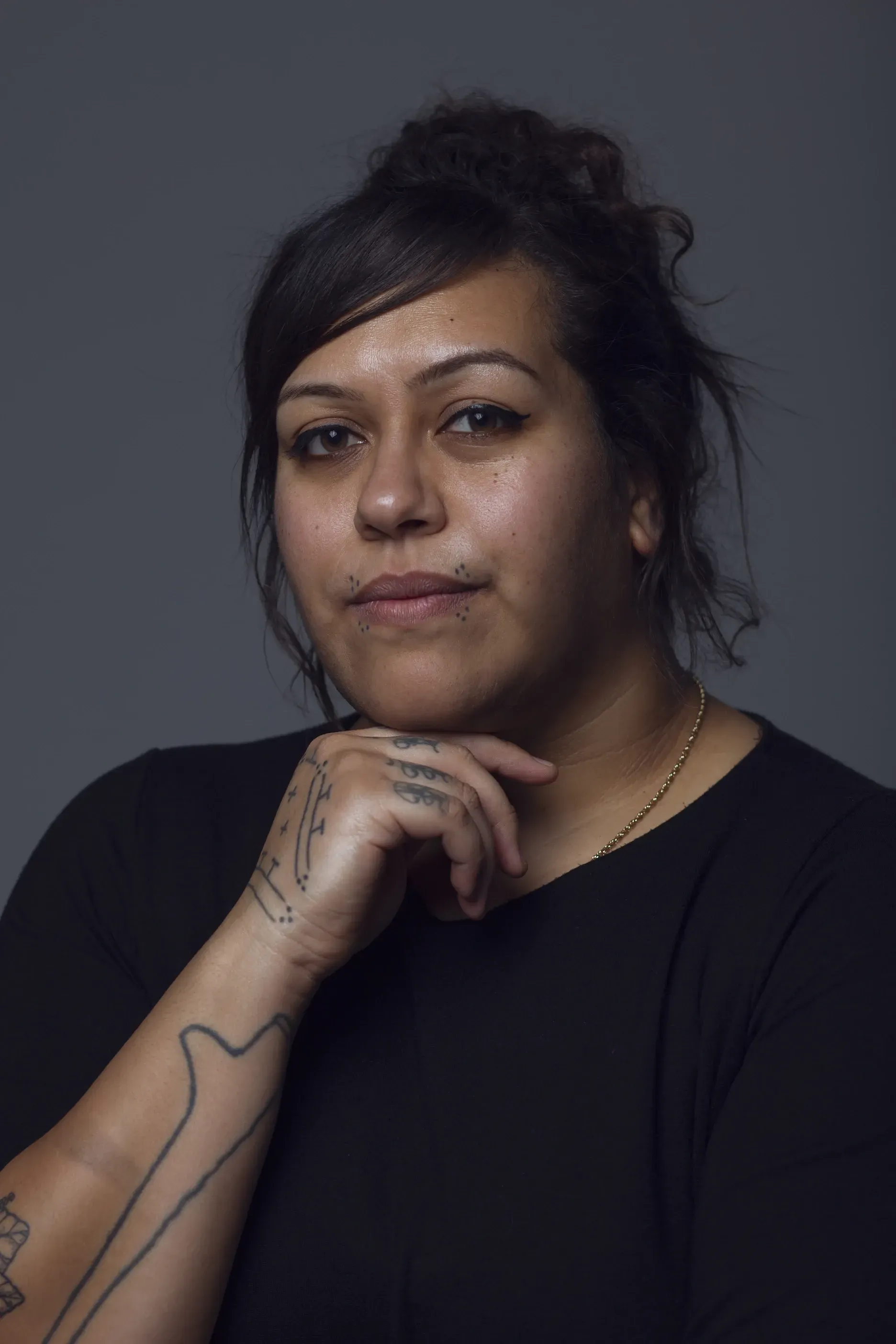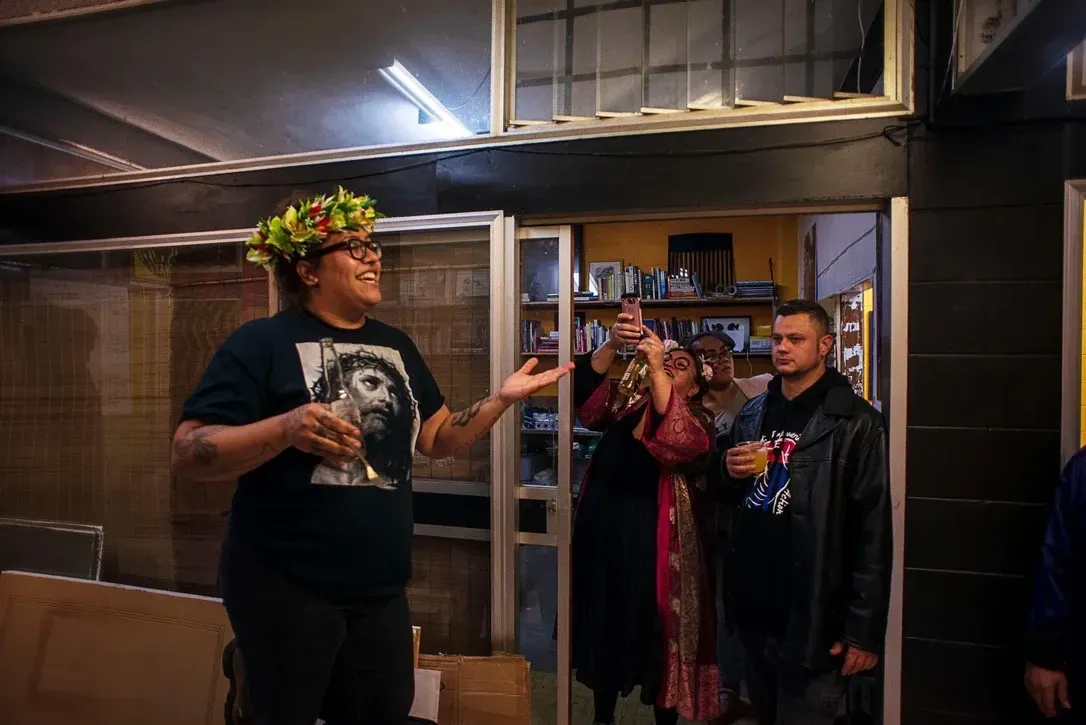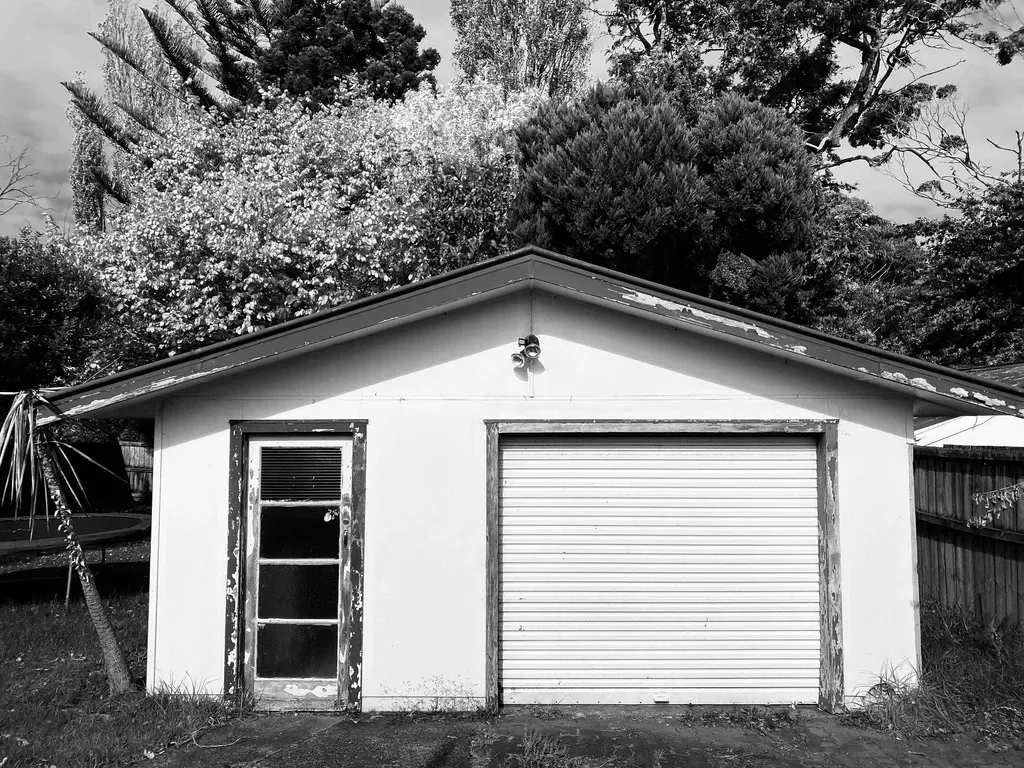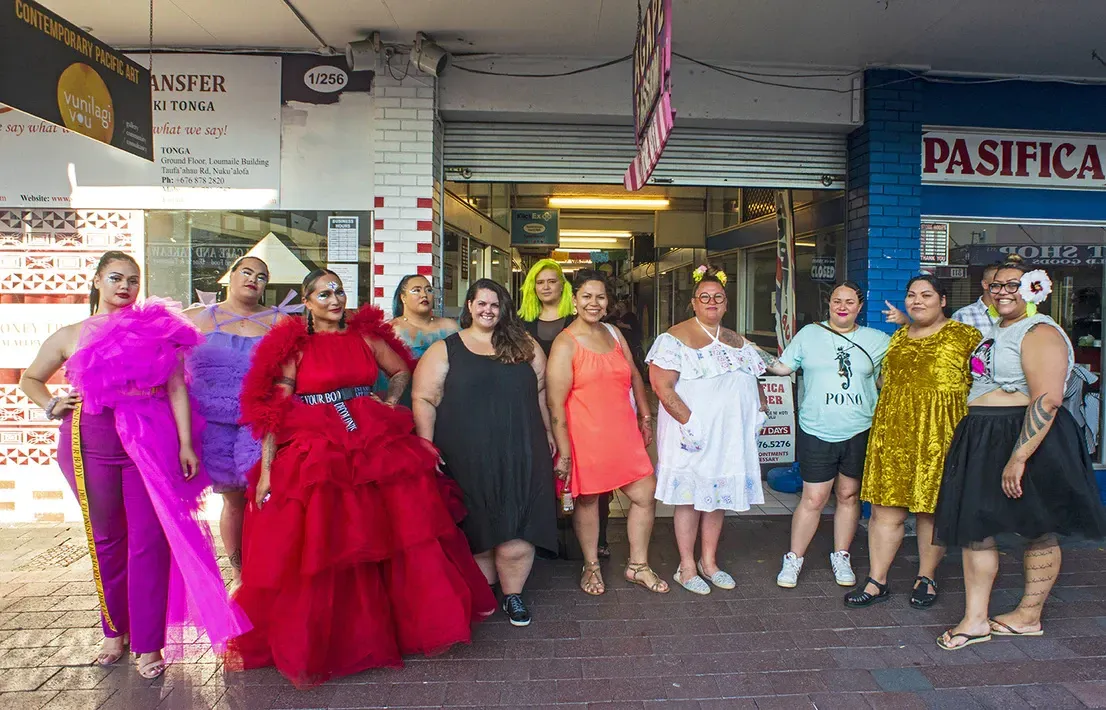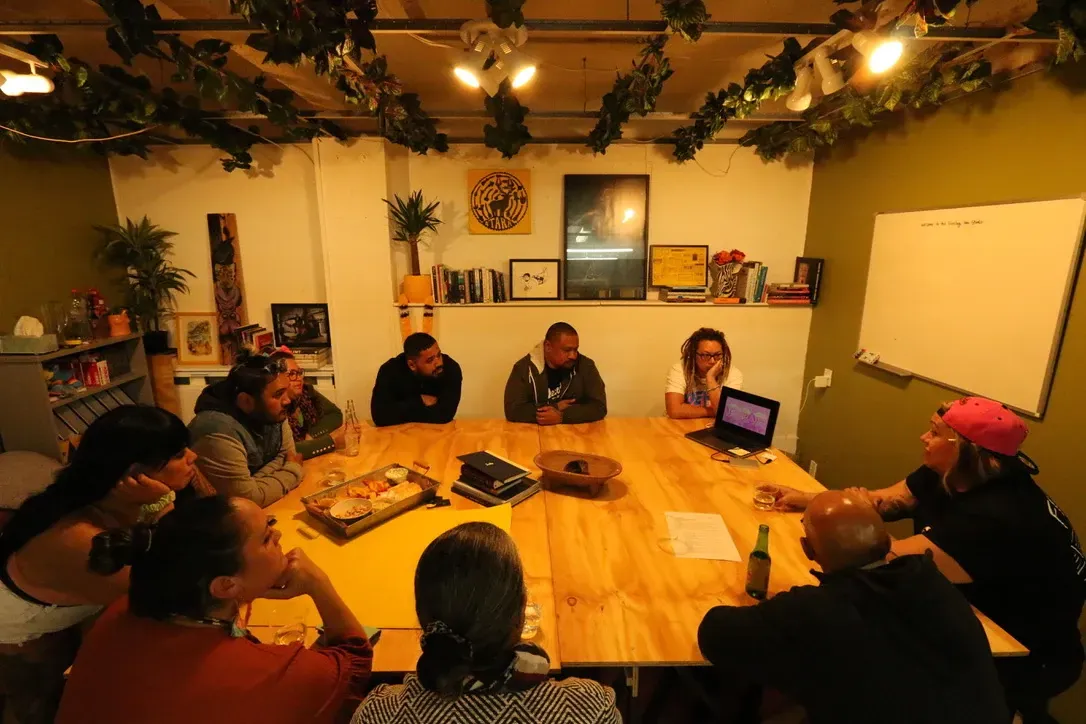South Auckland’s New Horizon
Written by
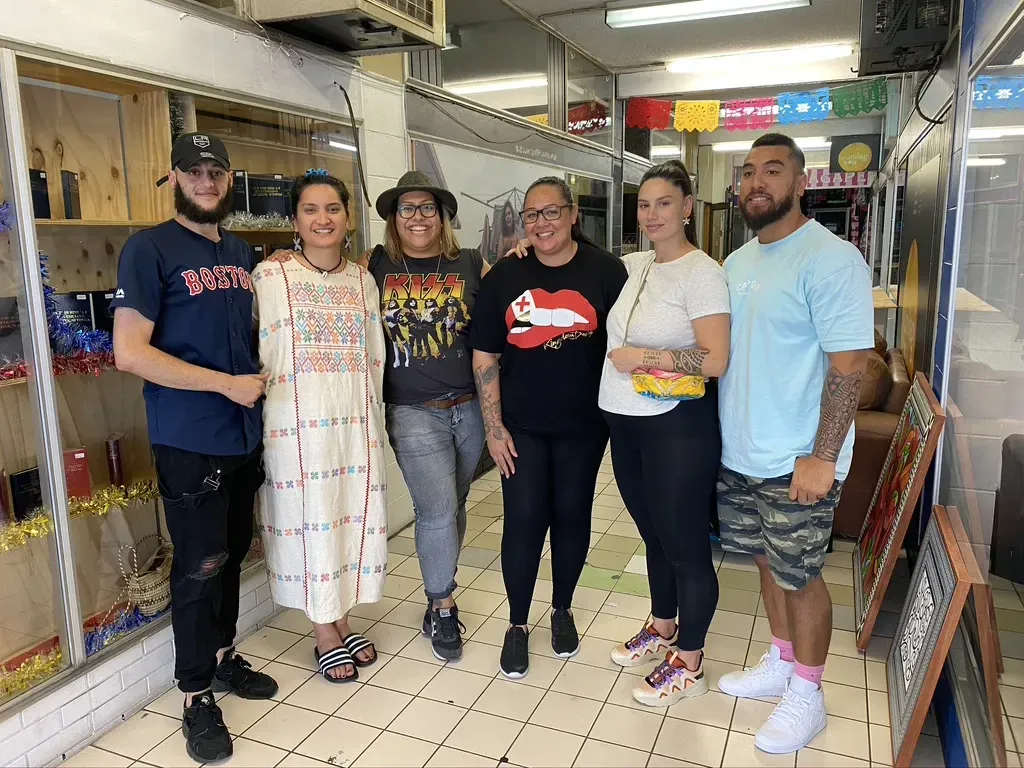
South Auckland is usually viewed in two ways - by those who deal in stereotypes and clickbait headlines - and those who don’t.
There isn’t often a middle ground; the opinion divide is pretty much black and white - sadly, that’s exactly what it is in many cases of prejudice.
It’s been that way for generations and while it has shown signs of softening, the reemergence of COVID-19 in Tāmaki Makaurau thrust this cultural melting pot firmly into the spotlight with some ugly consequences.
But the strength of this often-maligned community has been to the fore once again, forced to show its resilience in the face of negative hyperbole and played-out racial presumptions.
It’s a community Ema Tavola is fiercely proud to represent. She’s a part of it by choice.
All roads lead to Ōtara
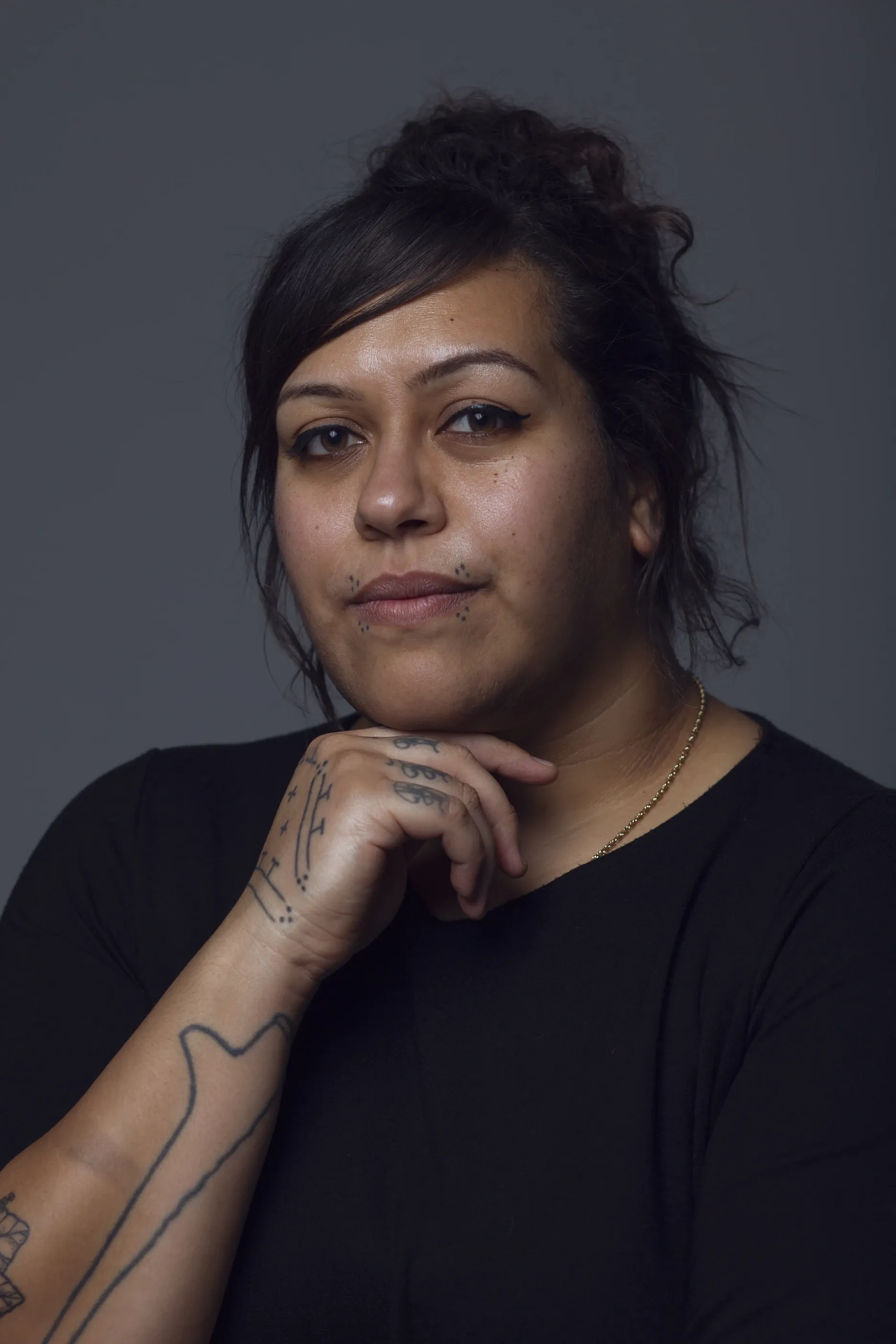
Ema Tavola. Photo: Pati Solomona Tyrell.
Tavola’s seen plenty of the world. Born in Fiji, raised in London and Belgium, she elected to call South Auckland home to further her studies and hasn’t left.
But she soon noted while studying visual arts in Ōtara that “nothing we were studying had anything to do with the environment when we walked out the gate. That’s where my curatorial practice was born, this idea of how we connect these worlds.
“As creatives, we pursue this ‘arts success’ but what is the value system when we come back to our neighbourhoods and our families here in South Auckland if we have to pursue a different values system in order to be validated?”
That question has driven Tavola to carve a successful and critical role within the South Auckland arts community. Her reputation as a professional curator and Pacific arts consultant has grown from strength to strength, with her artistic pride and joy being the establishment of Vunilagi Vou gallery.
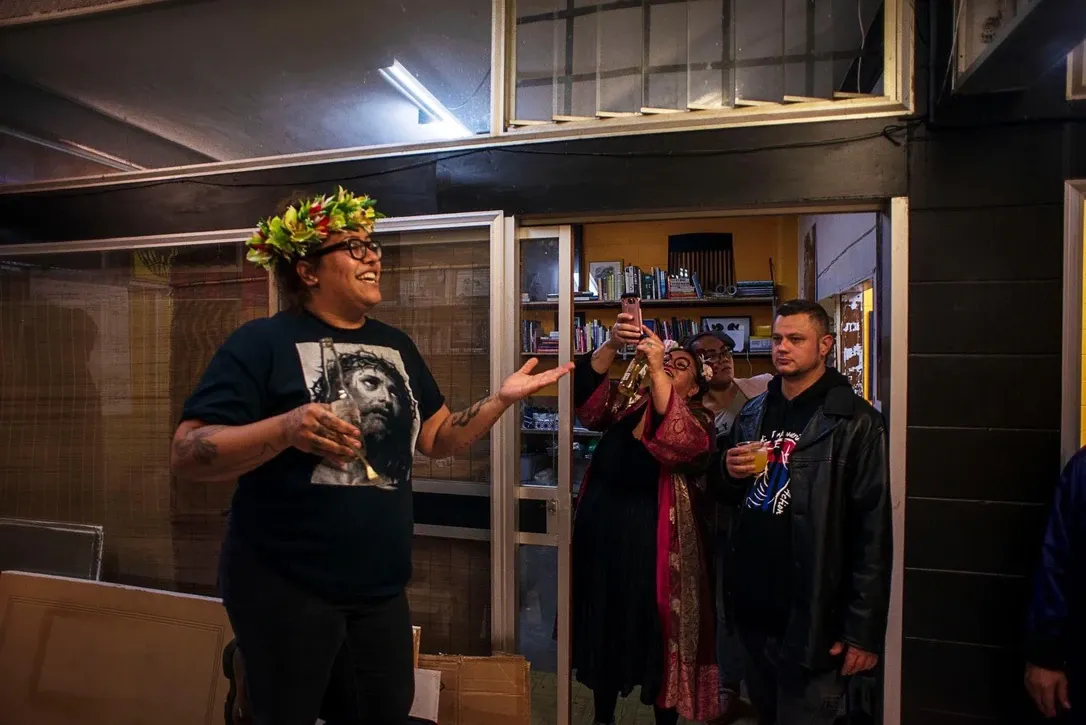
Vunilagi Vou inaugural exhibition opening, May 2019. Photo: Raymond Sagapolutele.
Experienced in instability
For so many of us, this has been a year like no other. For Tavola, having the freedoms and comforts of everyday life snatched away from you was an unwanted familiar feeling.
“I was in Suva after I finished high school when we experienced a civilian coup in 2000,” Tavola explains. “At the time, I was just getting into the workforce in television and radio then everything fell apart. That was a pretty significant moment for me as an 18-year-old. It was that which really instigated my move back to New Zealand, that was a real moment in terms of political awareness and your role as a civilian.
“I’ve thought about it a lot recently about how much people who have experienced nationwide instability before are quite prepared for what we’ve just endured. In 2000, the (Fijian) government-issued martial law so we had a curfew, our movements were controlled, a lot of countries put sanctions on us so our food system was controlled. Everything was affected so I felt being housebound is something I've done before.”
Keeping it local
A sense of deja vu hasn’t made this period easy by any stretch. A passionate exponent of her community, Tavola had to make a call whether Vunilagi Vou’s Ōtāhuhu location was viable.
“My business hasn’t been easy to define because I rely so much on grant money, which makes financial projections fairly hard because it’s all contestable. I had a retail space (along with the gallery) but our lease was up so I made the decision pretty early on to close the premises.”
The old saying of when one door closes, another one opens certainly rings true for Tavola. And that door is remarkably close to her front door.
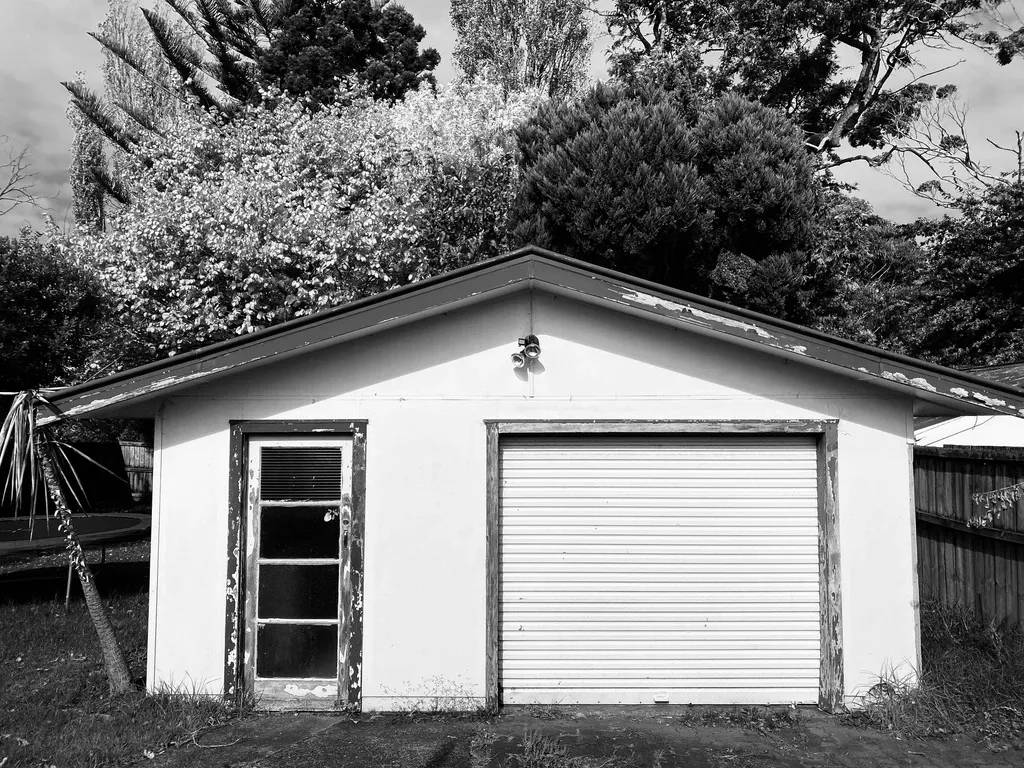
The site of Vunilagi Vou 2.0, before refurbishment. March 2020.
“I live on a family-owned property here in Papatoetoe and there's a stand-alone, pretty substantial garage. It’s going to be a home-based business, refurbishing the garage to make a beautiful gallery space. We’ll still run events and openings but just on a different scale.
“We plan to reopen on October 10th, that’s Fiji Day (Fiji’s national holiday). Vunilagi Vou is Fijian for new horizon so we’re going to use Fiji Day as the birth of the new space.
“We won’t be public-facing, we’ll function more like a dealer gallery would, where customers would need to make appointments to view. I’m really excited about what we have the potential to produce here because the exhibitions have no commercial agenda - we want to sell art but also want to keep building substantial curatorial ideas.”
Shapeshifting
But don’t confuse the lack of gallery as a downtime for Tavola, referring to her current mode as “shapeshifting.” As well as the physical work of refurbishing her new gallery space, the mental capacity such decisions can take up and lockdown with her five-year-old, the consultancy side of her business has shifted into overdrive in the past few months.
Tavola’s certainly had no shortage of interest in her services. As well as commissioned writing for contemporary art spaces and collectives in Wellington and Christchurch and guest editing a journal published in Fiji, she’s been heavily involved in advocacy work and building what the voice of the Auckland creative needs for the road ahead.
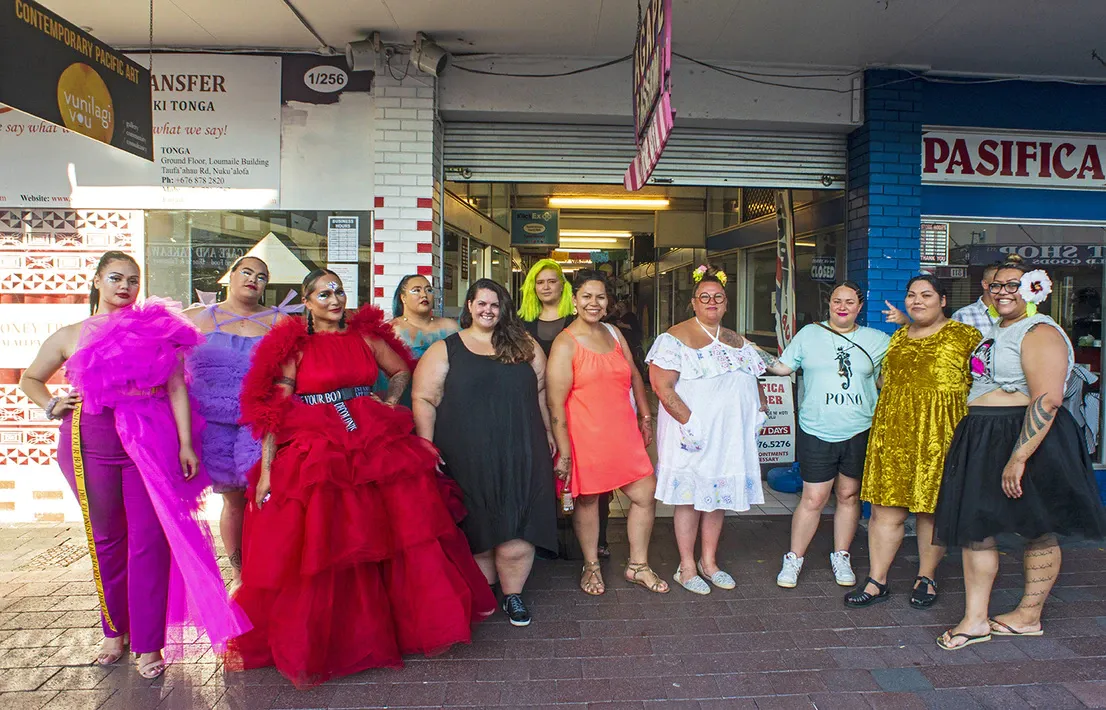
FATFEB exhibition opening with artists and models in Infamy Apparel, Vunilagi Vou, February 2020. Photo: Raymond Sagapolutele.
“The reason I’m doing that is just to make sure there’s a South Auckland and a Pacific perspective at the table because honestly, this sector is pretty white,” she states bluntly. “I’ve worked with Creative NZ for a number of years, trying to get people to access the grant money. “Not just telling that story, also telling CNZ how difficult their funding is and the barriers they present to some artists.”
Moana Oceania - what’s in a name?
You can add Auckland Council and Te Taumata Toi-a-Iwi to the list of organisations who have recognised her expertise and the importance of her voice.
Tavola’s among the contributors to the Arts of Moana Oceania research, working with “two phenomenal women”, Toluma'anave Barbara Makuati-Afitu & Kolokesa Māhina-Tuai of Lagi-Maama Academy and Consultancy to help fill the knowledge gap in the mainstream arts sector of a more cross-cultural approach and understanding around what art is.
Tavola explains Moana Oceania is a movement shifting the terminology of how we refer to the Pacific region and Pacific arts. “It’s led by some really great thinkers - Polynesian specifically. So instead of talking about the Pacific, which is a term derived from Latin meaning passive, Moana Oceania is a term that has been adopted through places like Auckland Art Gallery and Te Papa Publishing. It’s very much a New Zealand movement which is definitely good and picking up pace, an intellectual shift that’s happening just here.”
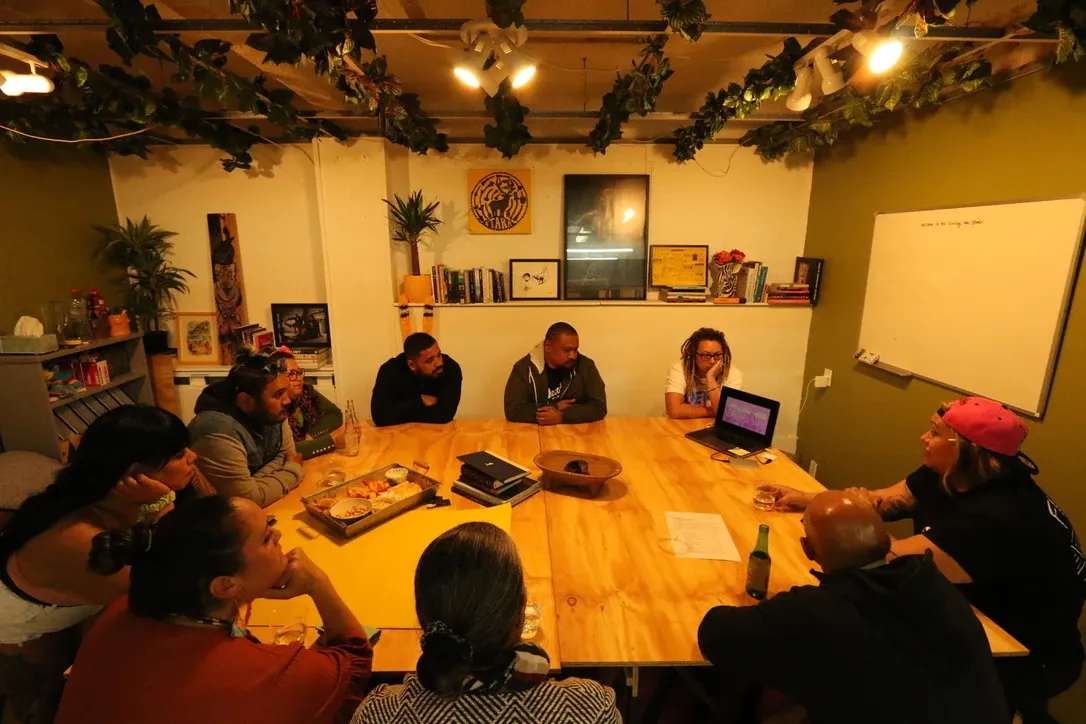
VV Crit Club, Vunilagi Vou, November 2019. Photo: Andre Kake-Joseph.
Make it count
Among the few positives of 2020 - the year everyone wants to see the back of - has been the increase in conversations about issues that have too easily been overlooked. Tavola sees this as an “opportunity to reset and to really think about an equity lens.”
She continues “I think this is a really exciting time for New Zealand. If we want to rebuild our art sector and this idea of participating in the arts, we should really be thinking about a lens of social inclusion and rethinking our inequalities that exist in society but are very much in the arts as well.”
With intellectual and social architects like Tavola helping guide the way, the creative minds of South Auckland will continue to challenge perceptions and show the importance of their contribution to Tāmaki Makaurau.
This story was originally published by our friends at Te Taumata Toi-a-Iwi.
